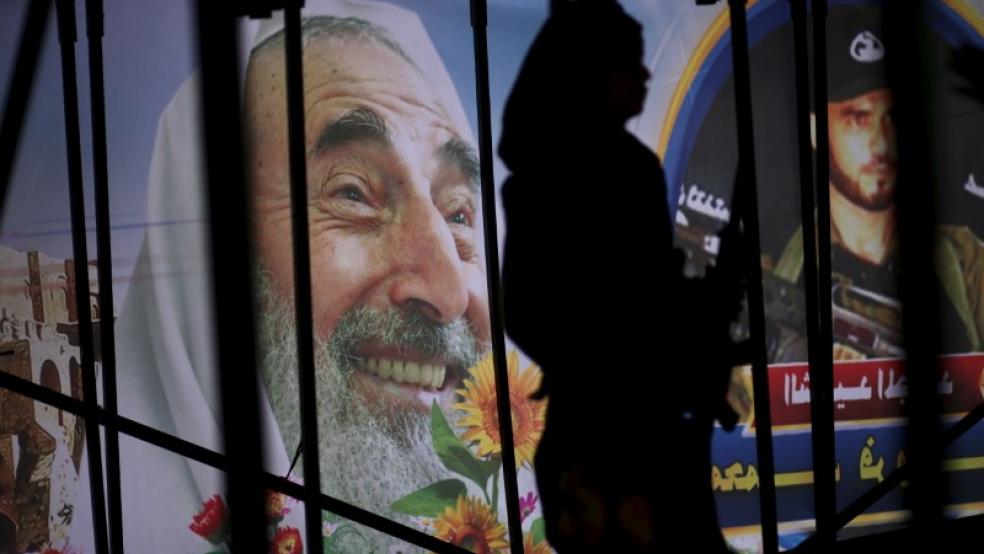But tensions remained high and more serious violence erupted in the Israeli-occupied West Bank and in the Gaza Strip.
Extra police stood guard throughout Jerusalem's walled Old City, some wearing riot gear, some on horseback, in anticipation of mass protests even after Israel bowed to international pressure and removed metal detectors outside Al-Aqsa.But only brief, isolated clashes between Palestinian protesters and Israeli police took place, without serious violence. Bloodier confrontations occurred outside Jerusalem.Palestinians in the Gaza Strip gathered near the border with Israel, waving flags, chanting slogans and throwing stones, locals said. A 16-year-old was shot dead by Israeli troops, Palestinian health officials said. Six others were injured.An Israeli military spokeswoman said dozens of people had gathered in "violent riots", also rolling burning tires at the border fence. When warning shots in the air did not stop them, the spokeswoman said, "shots were fired towards the main instigators".In the West Bank, a Palestinian armed with a knife charged at Israeli soldiers and was shot dead, the military said. Throughout Friday Israel limited entry to the mosque compound, a raised marble-and-stone plaza referred to by Muslims as the Noble Sanctuary and by Jews as the Temple Mount, to men over the age of 50. Women of all ages were allowed in.Tensions soared at the venue, often erupting into fierce clashes, after two Israeli police officers were shot dead on July 14 by gunmen who had hidden weapons inside the Aqsa compound, prompting Israel to install metal detectors at the entrance to the site. A Muslim boycott ensued.Under immense diplomatic pressure Israel removed the metal detectors on Thursday, a move welcomed by the Arab world, but disturbances quickly resumed when thousands of Muslim worshippers surged back into the mosque.A few thousand people made their way to Al-Aqsa for Friday prayers, police said, while a younger crowd remained outside and worshipped in narrow side streets. When the prayer session ended those congregated left the area peacefully, for the most part.Television footage showed a few brief confrontations involving a group of Palestinians, a number of them throwing bottles, and police dispersing them with stun grenades.There remained a risk of conflict over evening prayers, however.Israel captured East Jerusalem, including the Old City and the holy compound, in the 1967 Middle East war. It annexed the area in a move that has never been recognized internationally.Al-Aqsa mosque, Islam's third holiest shrine, sits on a tree-lined plateau in the heart of the Old City. It is also the holiest place in Judaism - the venue of two ancient temples, the last destroyed by the Romans. Jews pray under heavy security at the Western Wall at the foot of the elevated plaza.The dispute, like many in the Holy Land, is about more than security devices, taking in issues of sovereignty, religious freedom, occupation and Palestinian nationalism. (Reporting by Ari Rabinovitch and Nidal al-Mughrabi)Prayers at Jerusalem's Al-Aqsa mosque end without serious violence

Amir Cohen



